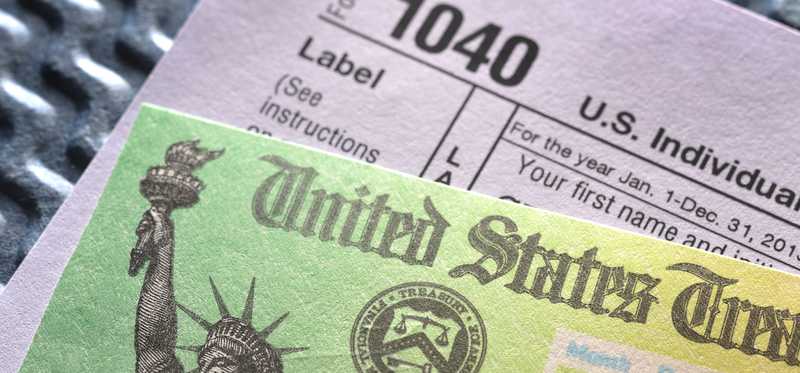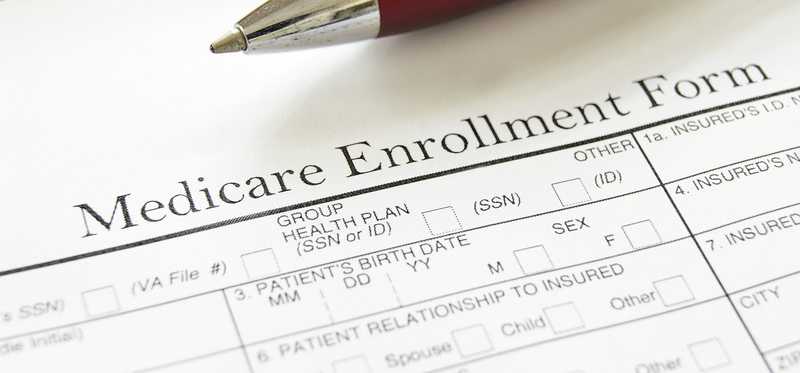22 Things You Need to Know About Medicare

22 Things You Need to Know About Medicare
There is much to learn
In 2016, almost 60 million people were covered by Medicare Parts A and B, including just over 50 million elderly people as well as 8.8 million disabled Americans. Medicare provides essential coverage for care you need as you age -- but it's a commonly misunderstood program because it doesn't always provide the coverage people expect.
To ensure you understand how Medicare will -- and will not -- provide for your health needs, check out the following 22 Medicare facts.
Previous
Next

1. There are different parts to Medicare
Medicare isn't just one insurance policy. There are different parts to Medicare that provide different types of coverage. The different parts of Medicare include:
- Medicare Part A, which covers inpatient
hospital care, inpatient care at skilled nursing facilities, hospice care, and some
home healthcare services.
- Medicare Part B, which covers basic
routine care including doctor visits, lab services, preventative care, health
screenings, physical therapy, occupational therapy, and other routine
outpatient care
Together, Medicare Parts A and B are often called original Medicare or traditional Medicare. Both Medicare Part A and Medicare Part B are managed by Centers for Medicare and Medicaid Services. You also have additional coverage options including:
- Medicare Part C: Medicare Part C is also
called Medicare Advantage. Medicare Part C allows you to get a plan from a
private insurer subject to Medicare guidelines.
- Medicare Part D: Medicare Part D covers
some prescription drugs. It can be purchased as a standalone plan or combined
with other Medicare plans.
Previous
Next

2. You become eligible for Medicare by working (or having a spouse that worked) for at least a decade
Medicare Part A provides coverage for Americans aged 65 or over, as well as for younger people with qualifying disabilities, such as end-stage renal disease. However, not every American qualifies. You become eligible if you or your spouse worked and paid Medicare taxes for at least 10 years.
If neither you nor your spouse worked enough years in jobs where you paid Medicare taxes, you can buy into Medicare Part A if you are 65 or over and are either a U.S. citizen or permanent resident of the United States. But, you'll need to pay premiums to buy in, instead of getting free Part A coverage.
Previous
Next

3. You and your employer pay taxes for Medicare while you're working
Medicare taxes are taken out of your paycheck, just as Social Security taxes are. The current Medicare tax rate as of 2018 is 2.9% of your income. However, you only pay 1.45% and your employer pays the other 1.45%. If you're self-employed, you'll be responsible for paying the full 2.9% yourself.
Unlike Social Security taxes, Medicare taxes are charged on your entire income. So, if you make $10 million annually, you'd pay 1.45% of your $10 million and your employer would pay 1.45% of your $10 million.
However, there's also an additional surcharge of .9% if you have a higher income. As of 2018, this additional surcharge kicks in once your income hits $125,000 if married filing separately; $250,000 if married filing jointly, and $200,000 for all other taxpayers.
Previous
Next

4. You may need to sign up for Medicare
If you're receiving Social Security benefits at age 65, you should be signed up automatically for Medicare Parts A and B. However, if you aren't receiving Social Security yet, you'll need to sign up. You can sign up for coverage on the Social Security Administration website. You can also call 800-772-1213 to get help.
If you want other types of Medicare, such as Medicare Part C or Part D, you'll also need to take proactive steps to get covered, including finding and signing up for an appropriate plan.
ALSO READ: Medicare Open Enrollment Is Here: How to Make the Most of It
Previous
Next

5. There's a specific deadline for signing up for coverage based on when you turn 65
You cannot just sign up for Medicare whenever you want. When you first become eligible for coverage at 65, there's a seven-month period of time when you can get covered. You can sign up:
- In the three months prior to turning 65
- In the month you turn 65
- In the three months after the month you turn 65
If you wait too long to sign up for Medicare after becoming eligible, you'll owe penalties.
Previous
Next

6. Waiting to sign up for Medicare could come with a penalty
If you're not eligible for premium-free Medicare Part A, you can sign up to buy it but need to do so as soon as you become eligible at age 65. Otherwise, if you sign up later, you'll pay a penalty equal to 10% of your monthly premium. You'll owe the penalty for twice the number of years you could've been covered by Medicare Part A but didn't sign up.
There's also a penalty for failing to sign up for Part B on time. The penalty equals 10% of your premium amount for each full 12-month period you were eligible to enroll but didn't. The penalty will be in effect for as long as you have Part B coverage.
You could also owe a penalty for part D, which is equal to 1% of the national base beneficiary premium multiplied by the number of months you were eligible but didn't have coverage. Since the national base beneficiary premium can change annually, the penalty for late enrollment can also change each year. The penalty you owe will be added onto your Part D premium for the whole time you're covered.
While there are some exceptions to penalties if you're eligible to sign up during a Special Enrollment Period, it's important to make sure you sign up when you're required to so you can avoid high costs.
Previous
Next

7. You can change your Medicare coverage during open enrollment
You don't have to stick with the same Medicare coverage every year forever. You could decide, for example, that you don't want Medicare Part C anymore and would prefer to get covered by original Medicare.
If you decide you want to make a change to your coverage, you can do so during open enrollment. Open enrollment runs from Oct. 15 to Dec. 7 each year. During this period, you should consider your health needs for the year so you can make certain you have the right coverage. Once open enrollment ends, you likely won't be eligible to make a change to Medicare coverage again for a whole year.
Previous
Next

8. Medicare also has special enrollment periods
You can enroll in Medicare coverage not only during the seven months around when you turn 65 or during open enrollment, but also if you qualify for a Special Enrollment Period. You can qualify for a special enrollment period if:
- You're covered by a group health plan through a
union or employer because you, your spouse, or an eligible family member is
working.
- Your coverage ends because employment ends.
Your special enrollment period lasts for eight months and it begins at the earlier of the month the employment ends, or the month after the group health insurance through your employer ends.
However, COBRA and retiree health plans aren't considered to be coverage based on current employment, so you will not be eligible for a Special Enrollment Period if COBRA or coverage through a retiree health plan terminates.
ALSO READ: 5 Medicare Changes for 2019 You Should Know About
Previous
Next

9. You can opt for Medicare Advantage to get coverage from a private insurer
When you sign up for Medicare, relying on Parts A and B and getting your care paid for by traditional Medicare is only one of your options. You can also sign up for a plan through a private insurer called a Medicare Advantage Plan, or Medicare Part C plan.
Insurers offering Medicare Advantage Plans must comply with strict guidelines established by Medicare. These plans, however, are often more comprehensive and provide broader coverage.
You'll have to shop around for the right Medicare Advantage Plan during open enrollment, and can change plans each year during this time period if you need to. Premiums and coverages vary from one plan to another, so be sure to compare all plan terms carefully to get coverage suited to your needs.
Previous
Next

10. You'll have to pay premiums for Medicare
Medicare Parts B, C, and D charge premiums for coverage. Medicare Part A is free, unless you or a family member haven't worked enough and paid enough Medicare taxes to be eligible.
The standard Medicare premium for Part B can change periodically. For 2018, the standard premium cost is $134. For Medicare Parts C and D, premiums vary from plan to plan. More comprehensive plans are more expensive and premiums could run upwards of $200 per month.
For Medicare Part D, there's a National Base Beneficiary premium used to estimate late enrollment penalties and income-related increases to premium costs. For 2018, that cost is $35.02.
Previous
Next

11. Medicare Part B premiums are usually deducted from your Social Security income
If you collect Social Security or Railroad Retirement Board benefits, your Medicare Part B premiums are typically deducted from your Social Security check.
However, if you don't receive these benefits, you'll receive a Medicare Premium Bill. You'll also get a bill if you must buy Medicare Part A or if you owe higher Part D premiums due to your income. If you receive a bill, you can have premiums automatically deducted from your bank account, or can pay by mail using check, credit card, or money order.
Previous
Next

12. Medicare premiums rise when your income is higher
If your income exceeds a certain threshold, you will have to pay higher monthly premiums for both Medicare Part B and Medicare Part D. You'll owe higher monthly premiums if your modified adjusted gross income is above $170,000 if you file as married filing jointly or if your modified adjusted gross income is above $85,000 for other taxpayers.
The amount you'll need to pay varies depending just how high your income is. For example, as of 2018:
- If your MAGI was $170,000 to $214,000 for
married couples or $85,000 to $107,000 for other taxpayers, you'd owe $53.50
monthly above the standard Part B premium and $13 above the standard Part D
premium for your coverage.
- If your income was above $320,000 as a married couple or $160,000 for other taxpayers, you would owe $294.60 per month above standard Part B premiums and $74.80 above the normal Part D premiums.
You can check out the Social Security Administration's chart to find out just how much you need to pay based on income level.
Previous
Next

13. Medicare premium increases are tied to your Social Security Cost of Living adjustment
Sometimes, Medicare premium costs rise more than your annual Cost of Living Adjustment to Social Security benefits. When that happens, Medicare premiums can't exceed the COLA adjustment for Social Security recipients due to hold harmless provisions.
However, when your Social Security benefits rise, if you aren't paying the standard Medicare premium because hold harmless provisions capped it in the past, your premiums will jump up.
To understand this, consider a simple example:
- Medicare premiums rise $15 monthly but your Cost of Living Adjustment only gave you a $10 per month raise on Social Security. Your premium increase would be capped at $10.
- You get a $25 raise the next year and Medicare
premiums rise $15 again. Your premium cost doesn't just go up $15 -- it goes up
$15 plus the $5 you weren't paying the prior year due to hold harmless
provisions.
- The Medicare premium increase would take up $20 of your $25 raise.
Hold harmless provisions protect you from a big premium increase if Social Security benefits don't rise as much as Medicare costs, but they could result in you losing out on much of the value of a later benefits increase.
Previous
Next

14. Medicare has other costs besides premiums
In addition to paying for Medicare premiums, you also have deductibles and copays to contend with. Costs you can expect in 2018 include the following:
- A $1,340 deductible per benefit period for a
hospital stay under Medicare part A.
- Additional costs for hospital stays exceeding 60
days or for stays in a skilled nursing facility that exceed 20 days.
- A $183 deductible per year for Medicare Part B.
- 20% coinsurance costs for Medicare Part B
Deductibles and coinsurance costs for Parts C and D vary depending upon the plan. However, the maximum annual deductible for a Part D prescription plan is $405 as of 2018.
Previous
Next

15. Medicare prescription drug coverage has a donut hole -- but it's narrowing
Medicare Part D is supposed to provide coverage for prescription drugs, but plans require beneficiaries to begin picking up the costs of prescriptions once their spending exceeds a certain threshold. In 2018, Medicare recipients enter the donut hole once they've incurred $3,750 worth of prescription drug costs.
Medicare recipients in the donut hole, or coverage gap, must pay 35% of the costs of name-brand medications and 44% of the cost of generics. Seniors will need to pay these costs until they've spent $5,000 out-of-pocket, after which their contribution to drug costs is capped at 5%.
Beginning in 2019, however, Medicare enrollees will only pay 25% of the costs of drugs when they're in the donut hole while brand-name drug makers will pick up more of the tab.
Previous
Next

16. Medicare has many coverage exclusions
Unfortunately, not only do you incur costs because of premiums, copays, and deductibles, but Medicare beneficiaries also have to pay for many medical services out-of-pocket because Medicare has many exclusions from coverage.
Some of the things Medicare does not cover include:
- Routine nursing home care (called custodial
care)
- Unskilled long-term care at home
- Prescription drugs (unless you sign up for Part
D coverage)
- Most types of dental care
- Hearing aids
- Eye care, including eye exams, glasses, and
contacts unless you have diabetes or have had certain types of cataract surgery
- Medical care while you're traveling outside the U.S.
You may end up paying a substantial amount of money for these services, unless you've purchased additional coverage to complement your Medicare benefits.
ALSO READ: Here's What Medicare Part B Premiums Will Be in 2019
Previous
Next

17. Medicare covers preventative services for free
While Medicare has many coverage exclusions, and getting most types of treatment can be expensive, you can also get Medicare to cover certain preventative care services at no cost to you. Preventative care that Medicare will pay for without you incurring any out-of-pocket expenses include:
- Disease screenings, including screenings for
alcohol misuse; aneurysm screening; screening for cancer; and screening for
depression and other mental health issues
- Obesity counseling
- Behavioral therapy for managing cardiovascular
disease
- Bone density measurements
- Diabetes self-management training
- Routine vaccinations
You should make sure your doctor knows you only want covered preventative care if you make an appointment and want to be certain you don't get billed for anything.
Previous
Next

18. You can take advantage of telehealth services
If leaving your home to visit the doctor is difficult, you may want to take advantage of telehealth services. In many circumstances, Medicare covers video and office consultations on electronic communications systems. You will pay the same amount as for in-person services, but won't have to worry about arranging transportation or waiting at the doctor's office.
Previous
Next

19. You can sign up for supplemental private insurance to pay for things Medicare won't
If you want to keep medical costs down or get coverage for things Medicare won't pay for, you can buy optional supplementary coverage. Typically, this coverage is purchased by seniors with traditional Medicare (Parts A and B), as Medicare beneficiaries who choose Part C who want more comprehensive coverage simply choose a Medicare Advantage plan that offers it.
The coverage you buy to supplement traditional Medicare is called a Medigap plan. Generally, you'll need to buy your Medigap plan during open enrollment. Medigap plans are available through private insurers and premiums and coverage can vary from one policy to another, so shop carefully to find a Medigap policy that provides the coverage you need.
Previous
Next

20. You can appeal Medicare coverage denials
If Medicare denies coverage for medical services or doesn't pay as much as you believe your insurance should cover, you can appeal the decision that was made. The Medicare.gov website explains how to file an appeal for a payment decision made by Medicare, your health plan, or your prescription drug plan.
If you're receiving Medicare services, such as care in a hospital, and you think coverage is going to end before you're ready, you not only have the right to challenge Medicare's decision but you also have the right to a fast appeal. Your provider gives you written notice that services will soon be ending, and this notice provides instructions on how to request your timely appeal.
Previous
Next

21. You can get help choosing your Medicare plan
Finding a Medicare plan and getting the coverage you need is complicated. The good news is, you can get assistance through your State Health Insurance Assistance Program (SHIPs). You can get local counseling through SHIPs as long as you're Medicare-eligible, your family member is eligible, or you're acting as a caregiver for someone eligible for Medicare coverage.
You can visit the State Health Insurance Assistance Programs website to find out where SHIPs centers are located in your area so you can get the help you need. You can also call 1-877-839-2675. SHIPs provide assistance not only with choosing a Medicare plan and signing up to get covered, but also with exploring assistance programs that help you pay out-of-pocket costs.
Previous
Next

22. You'll probably need a lot of money -- even with Medicare
Don't assume Medicare is going to provide coverage for the care you need as a senior. With all the costs you'll have to pay -- plus the expense of buying supplementary coverage if you want it -- you can expect to incur significant out-of-pocket expenses.
In fact, Employee Benefit Research Institute estimated a senior couple in the 90th percentile for prescription drug use would need as much as $370,000 to cover healthcare expenditures, even with a supplementary medical plan.
Coming up with this much cash is difficult as a retiree, so you should start planning now for how you'll pay care costs -- no matter what your current age. This may mean stepping up your retirement savings or cutting your budget to begin saving for healthcare expenditures.
Previous
Next

Understanding Medicare is critical
While you may not think Medicare is something you need to think much about, the reality is that it's critical you understand how Medicare works, what it covers, and what it's likely to cost you. By learning more about Medicare, you'll be better able to get the right benefits as a senior-- and you can make a plan to pay for things Medicare won't cover.
The Motley Fool has a disclosure policy.
Previous
Next
Invest Smarter with The Motley Fool
Join Over Half a Million Premium Members Receiving…
- New Stock Picks Each Month
- Detailed Analysis of Companies
- Model Portfolios
- Live Streaming During Market Hours
- And Much More
READ MORE
HOW THE MOTLEY FOOL CAN HELP YOU
-
Premium Investing Guidance
Market beating stocks from our award-winning service
-
The Daily Upside Newsletter
Investment news and high-quality insights delivered straight to your inbox
-
Get Started Investing
You can do it. Successful investing in just a few steps
-
Win at Retirement
Secrets and strategies for the post-work life you want.
-
Find a Broker
Find the right brokerage account for you.
-
Listen to our Podcasts
Hear our experts take on stocks, the market, and how to invest.
Premium Investing Services
Invest better with The Motley Fool. Get stock recommendations, portfolio guidance, and more from The Motley Fool's premium services.